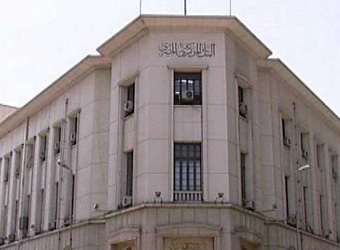Egyptian treasury bill yields fell at an auction on Sunday, with traders pointing to downward pressure from an increase in the amount of Egyptian pounds available at banks.
The average yield on 91-day treasury bills fell to 11.473 percent from 11.613 percent at last week’s auction, the central bank said.
The yield on 266-day treasury bills declined to 12.547 percent from 12.672 percent at the Aug. 25 auction.
The central bank sold, as planned, 2 billion Egyptian pounds ($286 million) worth of 91-day bills and 4 billion pounds in 266-day bills.
“There is Egyptian pound liquidity in the market and the overnight corridor (for central bank lending and borrowing) is still way below the T-bills yields, adjusted for taxes,” said Khalil El Bawab, head of fixed income at EFG Hermes Asset Management in Cairo.
Another Cairo-based fixed-income trader said the increase in available funds had compensated for jitters over the political turmoil in Egypt.
“Current yields do not reflect the fundamentals of the Egyptian economy and the considerable risks we face on the economic, political and security fronts,” the trader said.
“The main reason for the fall in yields is significant liquidity in the market alongside some optimism that the government will want to keep yields and interest rates low if it wants to stimulate the economy as it has said many times.”
He suggested some companies might be shifting funds out of dollars to take advantage of higher pound interest rates on the expectation the currency may remain stable or even strengthen over the coming months.
More than 900 people have died, including 100 security officials, after sit-ins in support of toppled President Mohamed Morsi were dispersed on Aug. 14 and in subsequent protests.
Yields on the three- and nine-months bills began falling after the army removed Morsi from power on July 3, but rose for two weeks after last month’s protests were broken up.
Source: Reuters



